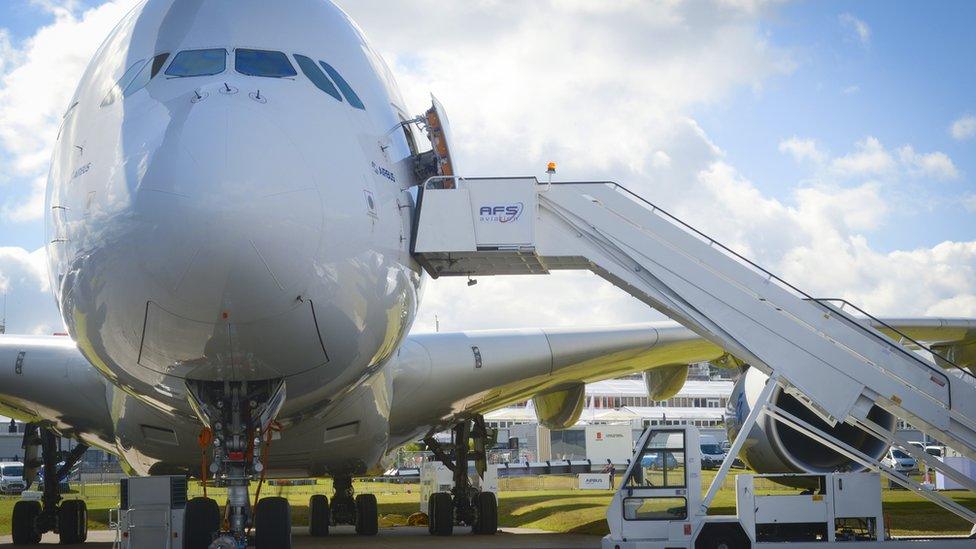Coronavirus: 1,730 Airbus jobs to go at Broughton and Filton
- Published
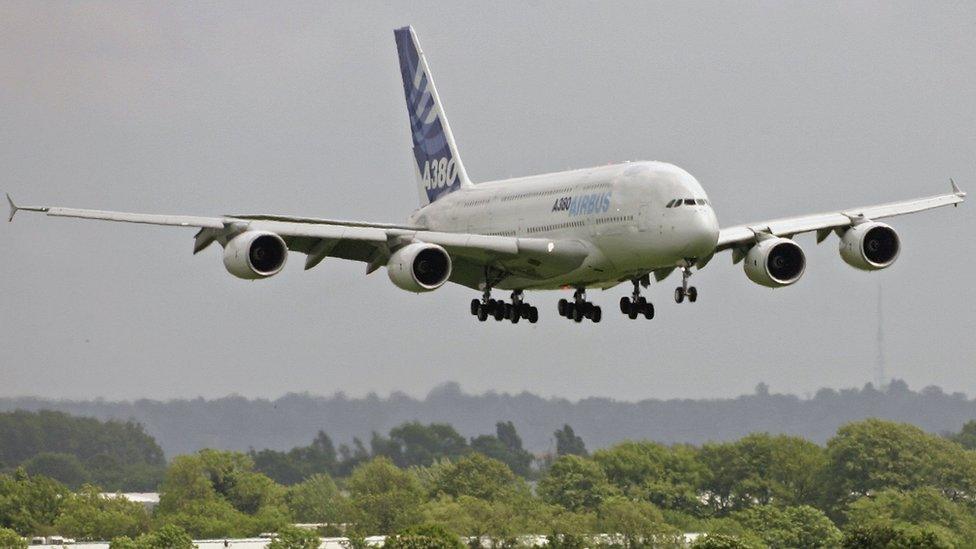
Almost a quarter of the Airbus jobs in Broughton are being lost
A total of 1,730 jobs will be cut at two of aerospace giant Airbus's UK factories, the company has confirmed.
It is part of plans to axe 15,000 jobs worldwide in response to the hit it has taken during the coronavirus pandemic.
Labour leader Sir Keir Starmer said he was "deeply concerned" about the 1,435 jobs being cut at Broughton, Flintshire and urged the UK government to "get to grips" with the economic crisis.
A further 295 jobs will go in Filton, Bristol.
Previously, the company said the jobs would go by summer 2021.
Airbus, which employs 6,080 workers at Broughton, hopes the majority will come via voluntary redundancies or staff retiring early.
But another 500 agency workers who were furloughed will not be returning.
It said in a statement: "This split reflects the significant impact the Covid crisis has had on the UK's commercial aircraft manufacturing activities, which are concentrated in Broughton.
"Airbus will continue to meet regularly with its trade union partners in the UK in order to identify solutions that will help us implement this adaptation while minimising the social impact of the Covid-19 crisis on the company."
Sir Keir told a call with voters in Flintshire on Thursday evening he feared it was the beginning of an economic crisis "the like of which we haven't seen for many, many years".
"It's one of the reasons that we've been saying to the [UK] government, it is all very well saying build build build… but at the moment the thing that matters more than anything else is preserving jobs and having a laser-like focus on preserving and protecting jobs."
One of Airbus's senior vice presidents admitted "it's going to be a difficult period," but added that the company remained "confident in the future" of the Broughton site.
Paul McKinlay, head of major component told BBC Wales: "If we didn't act, the viability and future of Airbus would be at stake. It's set at the right level, we believe, for when - we really hope - that recovery starts to come in two to three years, that we're ready for that brighter future."
He welcomed support given to the industry and company by both the Welsh and UK governments.
"With such devastating news and impact on our industry, any opportunity of support would be welcomed," he said.
"But I think if you look at the aviation sector and how much it's been devastated by this dreadful virus then I think there's quite a strong case for why the aviation sector needs support."
Earlier, Eluned Morgan, Wales' international relations minister, called the announcement "devastating".
Baroness Morgan said it was "a larger number of jobs than we feared may happen" and the Welsh Government would be "working with the UK government to make sure that we keep on pressing to see if we can get more specific support for the sector".
The cuts in Broughton represent almost a quarter of the workforce. Filton currently employs 3,200 people.
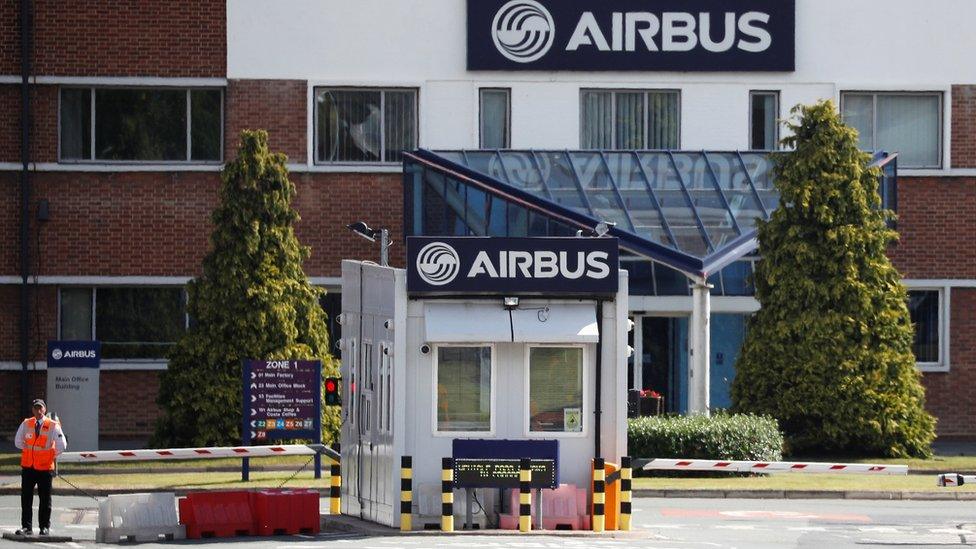
The job losses in Broughton have been described as "a hammer blow" for the area
Airbus in numbers
Supports an estimated 6,000 jobs in its supply chain and spending in the local community
Helped contribute £845m to Wales' GDP in 2015 - equivalent to 1.6% of the Welsh economy
Has invested more than £2bn over the past 15 years at the Broughton plant
Machinery and transport equipment makes up almost half of all goods Wales sells abroad
Llyr Gruffydd, North Wales Member of the Senedd, said it was "gut-wrenching" that 1,435 jobs were being cut at Broughton.
The Unite union described it as "another act of industrial vandalism" against the UK aerospace sector.
Its regional secretary for Wales, Peter Hughes, said no one ever thought it would be "this bad."
"Yesterday when the announcement was 'over 1,700,' we knew that was bad, and then today over 1,400 from here, (it) is just a massive number," he said.
"Especially when you think that's probably about a third of the workforce.
"It is catastrophic."
Mr Hughes said the union would be pushing for no compulsory redundancies and called on the UK Government to "make sure they deliver for Welsh workers."
There would be "a domino effect".
"This is going to knock all of the other dominoes down," he said.
"There's going to be massive knock-on effects.
"Every one worker here is six in the supply chain, you can do the sums yourself."
Some 134,000 people work for Airbus worldwide, with about 10% of them in the UK.
The factory in Broughton makes wings for the Airbus A380 - the world's largest passenger plane.
The Filton site is responsible for wing assembly and equipping the Airbus A400M, a military transport plane.
In April, the company warned it was "bleeding cash at an unprecedented speed" as it struggled with the effects of the coronavirus crisis.
It said on Tuesday that production had dropped by 40% in recent months and it did not expect air traffic to get back to pre-pandemic levels until 2023 at the earliest.
On Tuesday, EasyJet announced it had started consultations on plans to close bases at Stansted, Southend and Newcastle, with Unite saying nearly 1,300 UK crew members faced losing their jobs.

The Airbus A400M is equipped at the company's Filton site
Leader of the Welsh Liberal Democrats, Jane Dodds, said: "Airbus is a huge part of north Wales' economy and provides thousands of well-paid, high-skilled jobs. This announcement is a real blow for Broughton and surrounding communities.
"We need to do all we can to support those who face losing their job at this difficult time. I hope both the UK and Welsh governments will respond quickly to put additional support in place."
Delyn MP Rob Roberts called Airbus "a vital part of the economy in our part of the country, and I am therefore deeply concerned for workers at the plant at Broughton, their families, and our wider community".
In other industrial news:
Celsa Steel UK, which employs 800 out of its 1,000-strong workforce in south Wales is to receive an emergency loan from the UK government, which the Department of Business, Energy and Industrial Strategy (BEIS) said would allow it to continue trading.
Unions say they are "bitterly disappointed" at the rejection of proposals to keep open the Northwood Hygiene Products tissue factory at Penygroes, Gwynedd, which is set to close with 94 job losses.
- Published1 July 2020
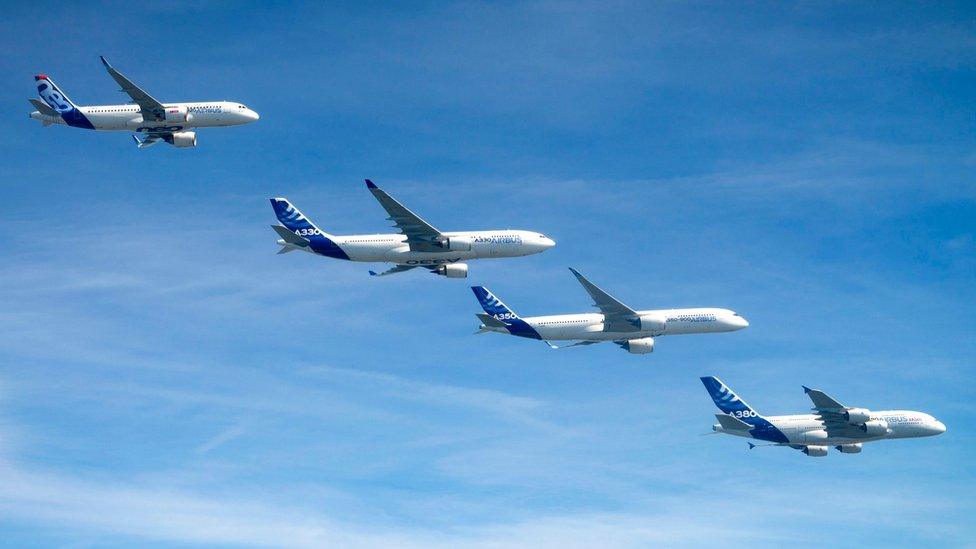
- Published1 July 2020
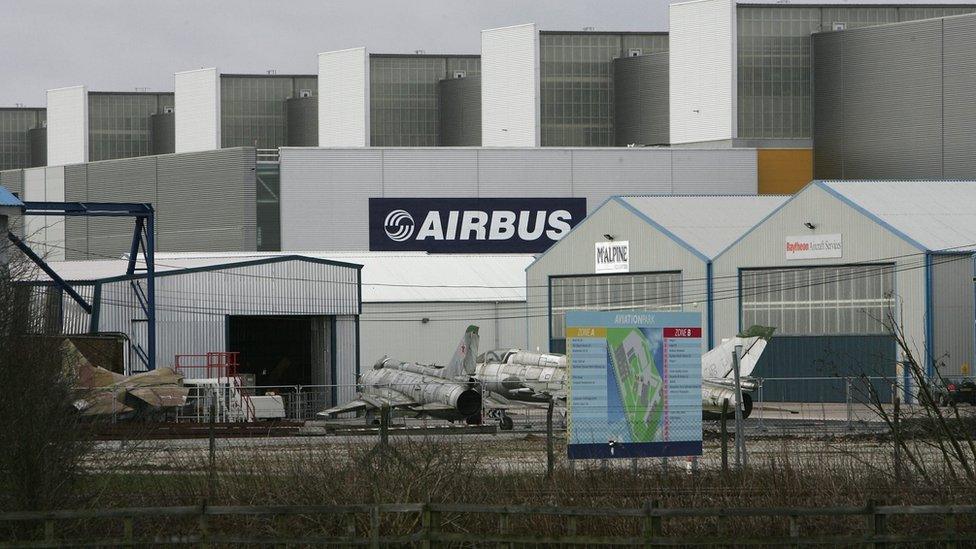
- Published30 June 2020
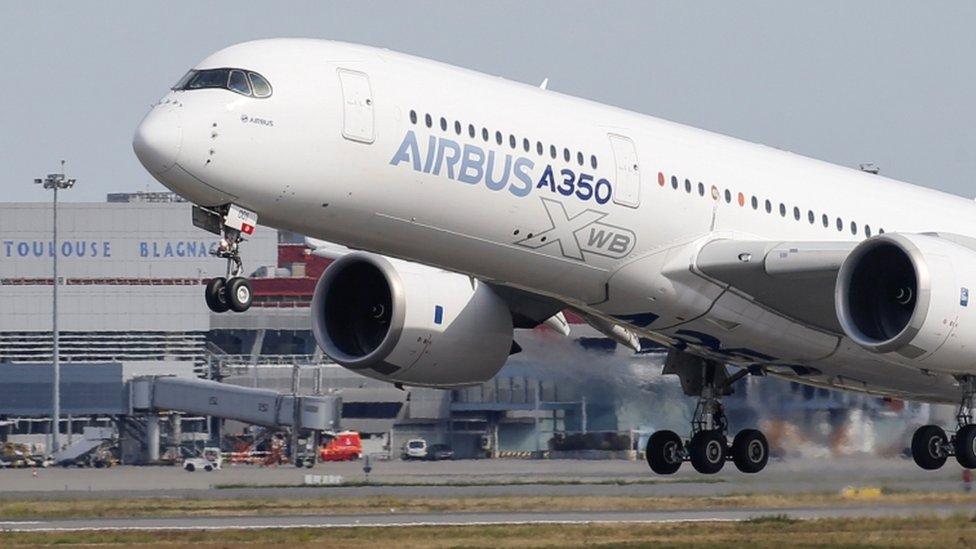
- Published28 January 2020
